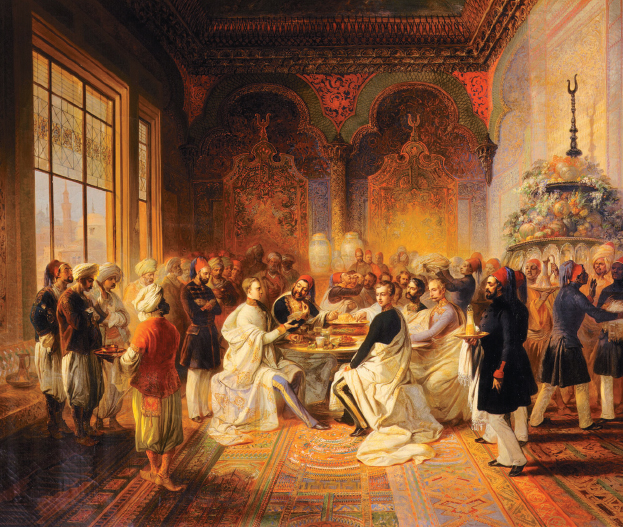Understanding Western Society
Printed Page 719
| > | What steps did Russia and the Ottoman Turks take toward modernization? |
IIN THE EARLY NINETEENTH CENTURY, the governing elites in the Russian and Ottoman Empires strongly opposed representative government and national independence for ethnic minorities, concentrating on absolutist rule and competition with other Great Powers. For both states, however, relentless power politics led to serious trouble. Their leaders recognized that they had to embrace the process of modernization, defined narrowly as the economic, military, and social-

Pasha Hilim Receiving Archduke Maximilian of AustriaAs this painting suggests, Ottoman leaders became well versed in European languages and culture. They also mastered the game of power politics, playing one European state against another and securing the Ottoman Empire’s survival. The black servants on the right may be slaves from Sudan. (Alfredo Dagli Orti/The Art Archive at Art Resource, NY)